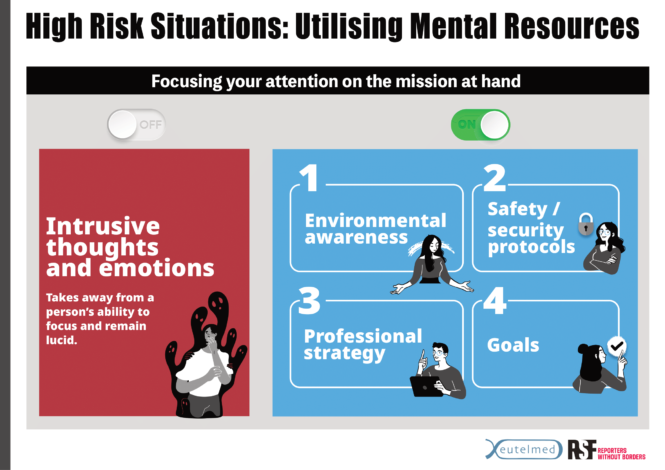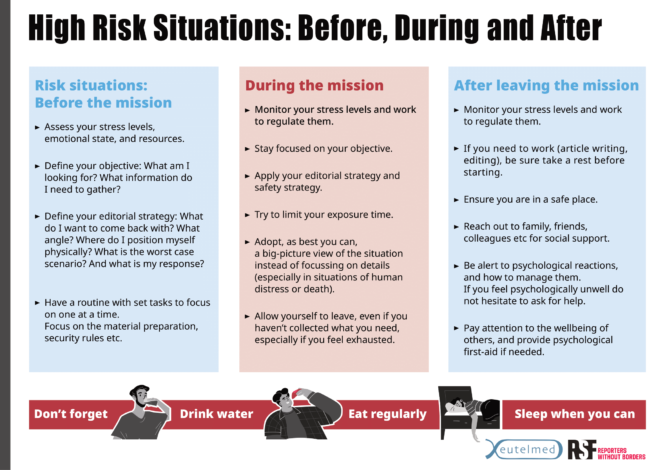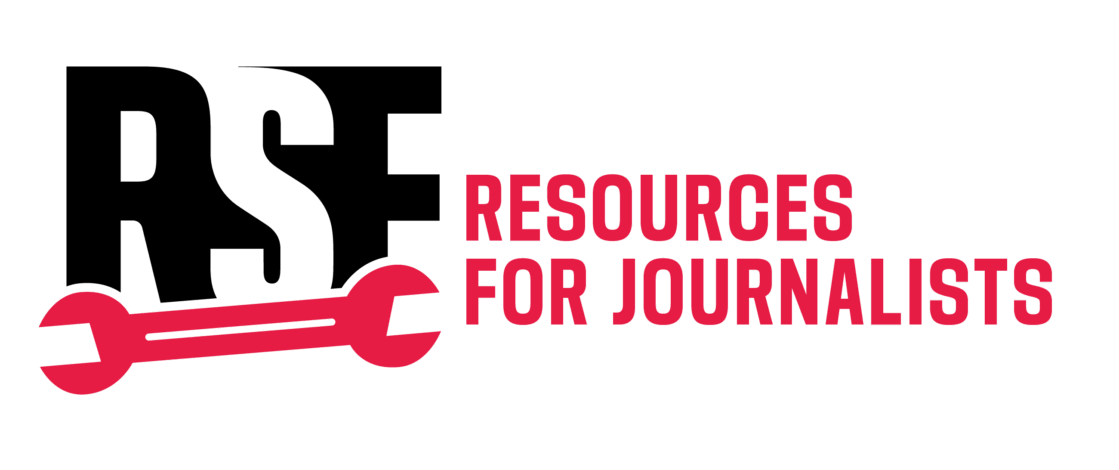Emotional stress can divide a journalist’s attention while on the field and thus negatively impact their work. This article, based on infographics from online medical consultation service provider Eutelmed, explains how journalists can effectively manage their emotional health during a mission.
On-the-ground reporting requires journalists to focus on more than just reporting the story, especially when covering events like a conflict or protest. They must remain highly aware of their environment and follow procedures to keep themselves safe.
This required concentration can be disrupted by the emotional stress of the job, the environment, and the story. Some journalists may present traumatic reactions following these high-stress experiences. Self-assessment and self-care are the two most vital tools in a journalist’s toolbelt against job-associated stress and trauma.
Before the mission
- Assess your emotional state and stress levels. Consider any recent high-stress experiences and make sure you are prepared to enter a high-stress situation.
- Define the objective, editorial goals and angle of your coverage beforehand.
- Research on the environment you are entering: where to position yourself, how to behave, and the laws and potential threats of this environment.
- Prepare security procedures and methods of contacting your team members.
- Consider your own physical fitness by ensuring you are eating regularly, drinking plenty of water, and sleeping well.
During the mission
- A high level of preparation beforehand will allow you to focus on your environment and adapt as you need.
- To avoid being distracted by negative emotions, especially in proximity to violence and unrest, it is important to maintain a big-picture view of the situation. Hyperfocusing on details will limit the scope of the information you can gather and cause you distress.
- Continue to self-assess and check in with yourself throughout the event. If you are becoming exhausted or if the environment is becoming too dangerous, allow yourself to leave even if you have not gathered the information you wanted.
After the mission
- Ensure you are safe.
- Take ample time to rest and recover and do not dive into work straight away.
- Reach out to family, friends, or coworkers for social support.
- Watch over yourself and your colleagues for signs of psychological stress.
Remember that everyone responds to stress and trauma differently. Journalists should be supportive to one another and listen to their own and each other’s needs. Do not hesitate to reach out for professional counseling if you feel you need it.
Additional resource
- Dart Center’s Journo Trauma Handbook pages 12-16: “Dealing with Potentially Traumatic Events” offers highly detailed advice on how journalists can look after themselves before, during, and after a mission.
Eutelmed, an international telemedicine platform with a focus on emotional and mental health, offers secure online medical consultation services, with healthcare professionals of a range of cultures and specialties including stress, trauma, grief, and many others.


Slides available in PDF here.



